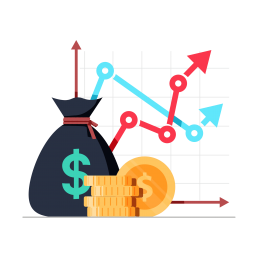Payday loans have a bad reputation and for good reason. But for those who may not understand the pitfalls of a payday loan, they can be an appealing choice for individuals who need money fast.
Unlike an installment loan, which is a legitimate way of borrowing a specific amount of money and paying it back in a certain amount of time, payday loans are notorious for taking advantage of vulnerable people.
What is a payday loan?
A payday loan—also called a payday advance, cash advance, or check advance—is a type of short-term loan that charges extremely high-interest rates and fees based on a borrower’s income and credit profile. The loan’s principal is usually a portion of a borrower’s next paycheck.
Payday loans are considered predatory because they do not require any collateral and charge high levels of interest, this makes payday loans a type of unsecured personal loan. They often include hidden fees, use deceptive language, and are marketed toward populations of people who are economically challenged.
How do you get a payday loan?
You’ll usually find a payday loan business in a physical storefront, though there are some that are online as well.
When you fill out a payday loan application, you must provide current pay-stubs from your employer that prove your actual income. Payday lenders often base the principal amount of money you’ll be getting based on what they predict your short-term income will be. They might also use your work wages as collateral in some cases.
Other factors that payday loan lenders might consider are your credit score and credit history, which is obtained at the time of your application.
Criminally-high interest rates
Payday lenders are known to charge borrowers incredibly high-interest rates. Though most states have laws that limit interest charges to less than 35%, payday lenders often find loopholes that allow them to be exempt from these regulations. But it’s not just the high-interest rates you should watch out for. The finance charges associated with many payday loans can range up to around $18 per $100 of the loan.
Because payday loans are governed on an individual state level, some states in the U.S. have taken extra steps to ban payday loans of any kind. As of 2020, 12 states, along with Washington D.C., have outlawed them. The 12 states are Arkansas, Arizona, Connecticut, Georgia, Maryland, Massachusetts, New Jersey, New York, Pennsylvania, North Carolina, Vermont, and West Virginia.
Watch out for those finance charges
Most payday loans are geared to meet short-term financial issues that some borrowers may face. The loan amounts typically range from $100 to $1,500 for 30 days or less. Many times these loans can be rolled over for additional finance charges, and many customers become repeat borrowers, which becomes a vicious cycle that only puts them more in debt.

Though the Truth in Lending Act does require payday lenders to disclose their finance charges, many borrowers overlook this information due to manipulative language, shady marketing practices, and the old “fine print” tactic, where the loan terms are typed in very small, hard-to-read print. Following the 2008 financial crisis, laws have been passed to create a more transparent lending market. Since then several court cases have been filed against predatory payday lenders that are violating these laws.
Instead of going through a payday lender, take advantage of what Leap Credit offers. We offer safe, secure loans online that can be transferred directly into your bank account within two business days in most cases. And we adhere to all state regulations where Leap Credit is available.